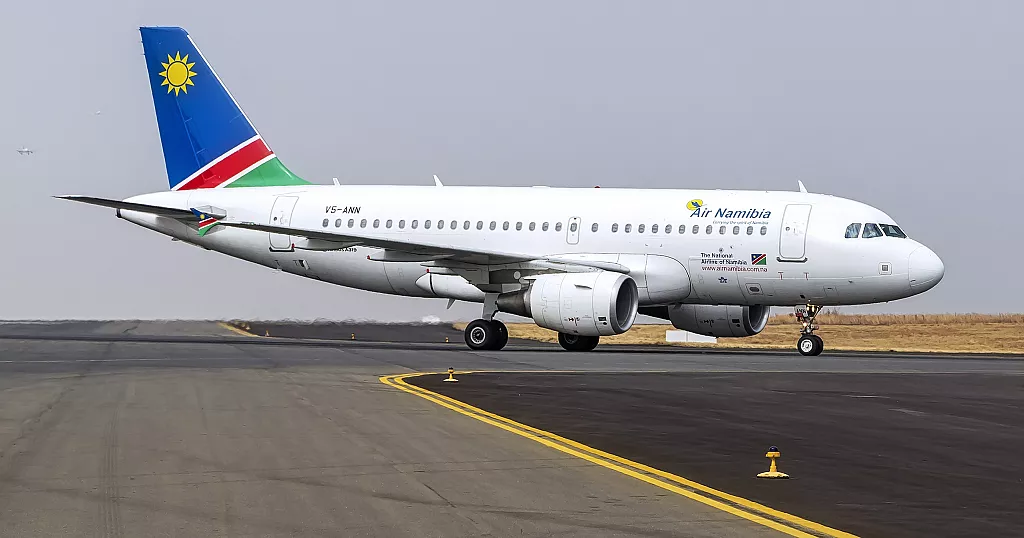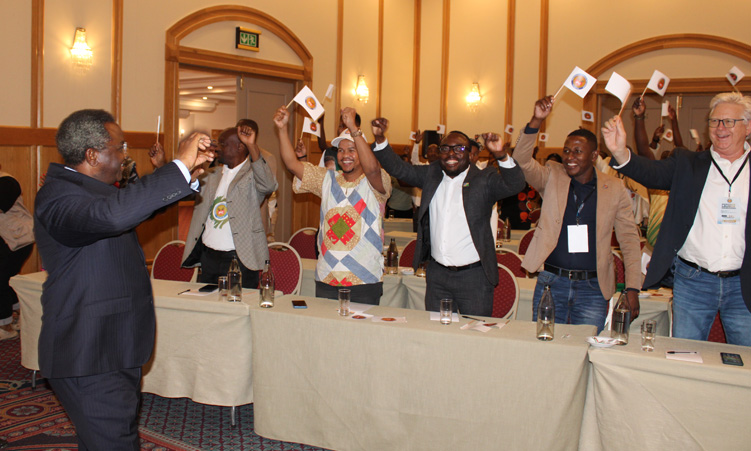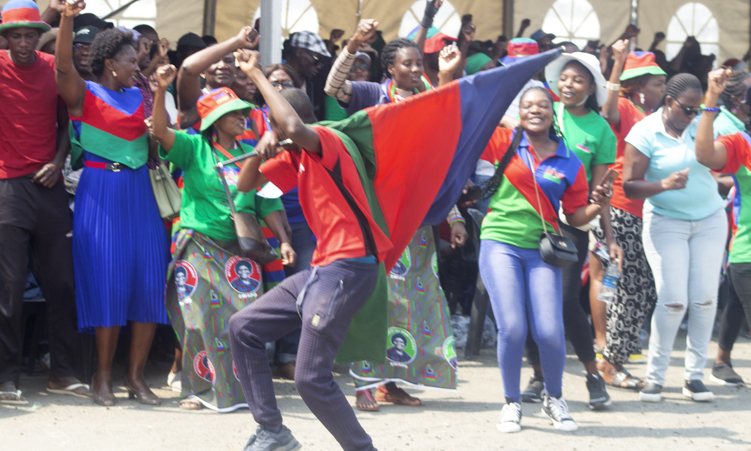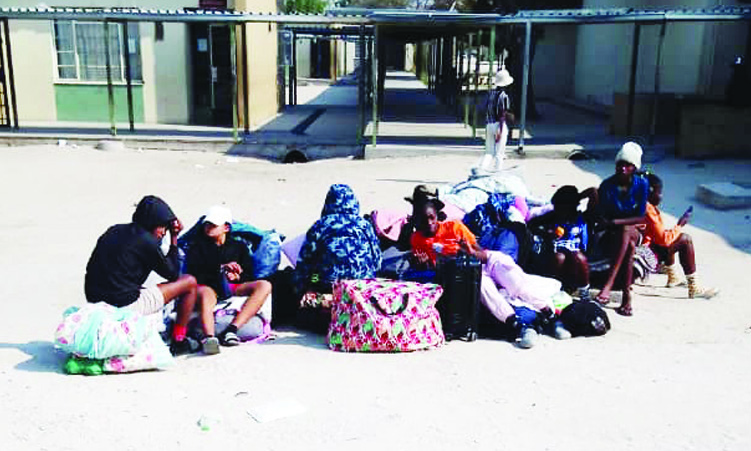WINDHOEK is the seat of the Presidency, bicameral parliament, and the Khomas Regional Council (KRC) is also headquartered in Africa’s cleanest capital city.
The city allows African and Western cultures to meet in perfect harmony. It is a place of striking contrasts and its townships’ populations keep swelling with the challenges associated with urban life.The suburb of Katutura is ever expanding with its informal settlements.Recent parliamentary debates made reference to questionable Government actions regarding high rural-urban migration and the pressure it places on the city’s infrastructure, finances and planning.What is clear is that Windhoek is not only a geographical space but it is increasingly becoming an important constituency for political actors, and the three-tier government system appears to bargain for legitimacy over Windhoek.When people seek to define roles and rules, power is hotly contested.But who is ultimately responsible for improving the standards of living of people residing in Windhoek, including those arriving on a daily basis in search of greener pastures? The primary objective of this analysis is to examine possible flaws embedded in the three-tier governance system, focusing on Windhoek as a case study.It also explores the dynamics of high migration and the effectiveness of government decentralisation policy within a unitary state.As a regular visitor to Windhoek, I have told Mayor Mathew Shikongo and his Chief Executive Officer of my good experiences of the city.I praised the City for maintaining road infrastructure, general cleanliness and the professional traffic officials.These things make one’s visit worthwhile.But like any capital city, Windhoek could do more to curb crime and plan better to allow safe cycling.KRC derives about 95 per cent of its political legitimacy from an urbanised area of Windhoek.It boasts a huge and modern office complex built to match its political superiority.Its location is carefully selected to enforce political hegemony.Yet it is puzzling to understand clearly which level of government performs what functions in Windhoek.With the country still grappling with effective decentralisation, it would appear this policy has effectively slowed down, and still faces uncertainty.It remains to be seen whether participatory democracy, including the earmarked state functions, will ever trickle down to the sub-national government level.Windhoek is home not only to the wealthiest class of Namibian society but also to rural-born urbanised Mercantilist elites who wield political power.What matters most seems to be pure politics.It is important to understand how political actors contest power in the ‘high politics’ within a constituency.Good governance is prerequisite for sustainable development.It is arguably the most important factor for eliminating poverty and advancing socio-economic development.But at times political power might be concealed, making it difficult for ordinary citizens to demand accountability from elected officials.In the modern world, it is assumed that by the methods of democracy the will of the people shall prevail.But democracy in itself does not guarantee a good life for all.In order to understand the present situation, awareness of existing power structures and political culture of the people seems vital.Firstly, it is important to understand how political power is generated, consolidated and supplied through the state sector and eventually penetrates society.Political power is distributed with an aim to achieve influence and desired outcomes on official decision-making bodies.The peculiar situation of Windhoek produced the City Mayor and KRC Governor both of whom first emerged from non-competitive party list elections with Swapo Party heavyweights assuming prerogative powers to nominate who should become political head of their respective institutions.This system is however being rejected by grassroots democracy for instilling a system of ‘voting without choosing’.It would appear that the scramble for Windhoek will continue in time to come.To understand the functions of the three-tier government in Windhoek represents a challenge.Local government, or City of Windhoek, provides public services such as a transport system, construction of roads, water and electricity supply, recreational facilities as well as crime prevention not only within the city but covers about nine constituencies which form part of Khomas Region.By law the City is obliged to pay 5 per cent of its annual development budget to KRC.This substantial amount of money ranges between N$6-N$7 million a year.Whether the City of Windhoek receives reports from KRC on how this money is being spent is not known.But despite this, the City does not enjoy subsidy from Central government like other local authorities.It could be argued that the City subsidises the Central Government as well as Khomas Regional Council.The question remains as to who is charge in Windhoek? In theory it would appear the City Council of Windhoek is the Big Brother who holds the power of the purse to dispense capital development projects.To what extent does Central government allow Windhoek autonomy given its broad responsibilities and public functions.If any kind of disaster struck Windhoek, the likelihood is that the City of Windhoek would be put under pressure to deal with it.Migration is the biggest challenge the City of Windhoek is faced with.And like other political regions, the mandate of the KRC is provided for in the Constitution and the Regional Councils Act of 1992, Act 22 of 1992 as amended, and is to “Represent and govern the affairs of the inhabitants of Khomas Region; plan, coordinate and implement physical and socio-economic development of the region in partnership with the inhabitants and stakeholders in the region; and acquire and utilise the natural resources, financial and human capital of the region in a sustainable manner.”Since its inception in 1993, it is difficult to measure the success of the KRC without understanding those development projects sponsored by the City itself.Some Khomas councillors are known to directly approach officials at the City of Windhoek, lobbying for developmental projects in favour of their constituencies.This could include basic services such as running water, electricity, housing, education, social security, and health facility.There have been eyebrows raised about Khomas councillors who do not reside in their constituencies.The sense of abandonment of crowded suburbs as a consequence of the absence of the regional councillors has become obvious.Some regional politicians settled comfortably in affluent residential areas of Windhoek.It is still unclear why this ‘political migration’ by Regional councillors has not yet been resolved.The recent debate about Herero Mall has further revealed the shortcomings of a three-tier system by isolating the prominence of KRC.Why critics did not direct their requests to the Regional Councillor who has been elected directly by the people of Katutura Central in which Herero Mall resorts, explains once again that most people do not see that KRC is responsive to issues of community concerns.KRC should take steps to manage this perception as this trend may undermine its constitutional mandate amidst a reluctant public characterised by apathy and passivity.Unlike their counterparts in mostly rural constituencies who have to battle to bring services closer to the people, KRC enjoys the comfort of operating in the urbanised environment covered by the financially powerful City of Windhoek.The high rural-urban migration in Windhoek has come to mean gainful political constituencies for KRC yet its devastating effects are perceived to be Municipal problems only.KRC political activities are overshadowed first by national politics performed by Cabinet Ministers and members of parliament, and secondly the massive development projects sponsored by the financially powerful City of Windhoek.These political dynamics and complexities pose serious challenge to the KRC’s political legitimacy and clearly undermine its constitutional mandate.KRC should urgently review its style of operation and find practical strategies to benchmark its activities.This would herald a shift in the KRC policy direction.Democracy must go beyond representation and to include popular participation.This further illustrates that the relationship between three levels of government does not necessarily provide all answers to proper public governance and accountability and efficient service delivery.KRC should find practical ways to work closely with grassroots so as to deepen understanding of its existence and purpose.KRC should also embark on measurable and effective job creation projects, identify self-empowerment programmes and seek to address other forms of marginalisation.Drastic steps must be taken with necessary appetite by removing impediments, be they political, legal or cultural, that hamper socio-economic development in a unitary state.This would ensure that the fruits of government actions reach the majority of the population.* Fluksman Samuehl is a scholar of International Relations and Strategic Studies, former Member of Parliament and and PhD candidate with the University of St Andrews in Scotland.It is a place of striking contrasts and its townships’ populations keep swelling with the challenges associated with urban life.The suburb of Katutura is ever expanding with its informal settlements.Recent parliamentary debates made reference to questionable Government actions regarding high rural-urban migration and the pressure it places on the city’s infrastructure, finances and planning.What is clear is that Windhoek is not only a geographical space but it is increasingly becoming an important constituency for political actors, and the three-tier government system appears to bargain for legitimacy over Windhoek.When people seek to define roles and rules, power is hotly contested.But who is ultimately responsible for improving the standards of living of people residing in Windhoek, including those arriving on a daily basis in search of greener pastures? The primary objective of this analysis is to examine possible flaws embedded in the three-tier governance system, focusing on Windhoek as a case study.It also explores the dynamics of high migration and the effectiveness of government decentralisation policy within a unitary state.As a regular visitor to Windhoek, I have told Mayor Mathew Shikongo and his Chief Executive Officer of my good experiences of the city.I praised the City for maintaining road infrastructure, general cleanliness and the professional traffic officials.These things make one’s visit worthwhile.But like any capital city, Windhoek could do more to curb crime and plan better to allow safe cycling.KRC derives about 95 per cent of its political legitimacy from an urbanised area of Windhoek.It boasts a huge and modern office complex built to match its political superiority.Its location is carefully selected to enforce political hegemony.Yet it is puzzling to understand clearly which level of government performs what functions in Windhoek.With the country still grappling with effective decentralisation, it would appear this policy has effectively slowed down, and still faces uncertainty.It remains to be seen whether participatory democracy, including the earmarked state functions, will ever trickle down to the sub-national government level.Windhoek is home not only to the wealthiest class of Namibian society but also to rural-born urbanised Mercantilist elites who wield political power.What matters most seems to be pure politics.It is important to understand how political actors contest power in the ‘high politics’ within a constituency.Good governance is prerequisite for sustainable development.It is arguably the most important factor for eliminating poverty and advancing socio-economic development.But at times political power might be concealed, making it difficult for ordinary citizens to demand accountability from elected officials.In the modern world, it is assumed that by the methods of democracy the will of the people shall prevail.But democracy in itself does not guarantee a good life for all.In order to understand the present situation, awareness of existing power structures and political culture of the people seems vital.Firstly, it is important to understand how political power is generated, consolidated and supplied through the state sector and eventually penetrates society.Political power is distributed with an aim to achieve influence and desired outcomes on official decision-making bodies.The peculiar situation of Windhoek produced the City Mayor and KRC Governor both of whom first emerged from non-competitive party list elections with Swapo Party heavyweights assuming prerogative powers to nominate who should become political head of their respective institutions.This system is however being rejected by grassroots democracy for instilling a system of ‘voting without choosing’.It would appear that the scramble for Windhoek will continue in time to come.To understand the functions of the three-tier government in Windhoek represents a challenge.Local government, or City of Windhoek, provides public services such as a transport system, construction of roads, water and electricity supply, recreational facilities as well as crime prevention not only within the city but covers about nine constituencies which form part of Khomas Region.By law the City is obliged to pay 5 per cent of its annual development budget to KRC.This substantial amount of money ranges between N$6-N$7 million a year.Whether the City of Windhoek receives reports from KRC on how this money is being spent is not known.But despite this, the City does not enjoy subsidy from Central government like other local authorities.It could be argued that the City subsidises the Central Government as well as Khomas Regional Council.The question remains as to who is charge in Windhoek? In theory it would appear the City Council of Windhoek is the Big Brother who holds the power of the purse to dispense capital development projects.To what extent does Central government allow Windhoek autonomy given its broad responsibilities and public functions.If any kind of disaster struck Windhoek, the likelihood is that the City of Windhoek would be put under pressure to deal with it.Migration is the biggest challenge the City of Windhoek is faced with.And like other political regions, the mandate of the KRC is provided for in the Constitution and the Regional Councils Act of 1992, Act 22 of 1992 as amended, and is to “Represent and govern the affairs of the inhabitants of Khomas Region; plan, coordinate and implement physical and socio-economic development of the region in partnership with the inhabitants and stakeholders in the region; and acquire and utilise the natural resources, financial and human capital of the region in a sustainable manner.”Since its inception in 1993, it is difficult to measure the success of the KRC without understanding those development projects sponsored by the City itself.Some Khomas councillors are known to directly approach officials at the City of Windhoek, lobbying for developmental projects in favour of their constituencies.This could include basic services such as running water, electricity, housing, education, social security, and health facility.There have been eyebrows raised about Khomas councillors who do not reside in their constituencies.The sense of abandonment of crowded suburbs as a consequence of the absence of the regional councillors has become obvious.Some regional politicians settled comfortably in affluent residential areas of Windhoek.It is still unclear why this ‘political migration’ by Regional councillors has not yet been resolved.The recent debate about Herero Mall has further revealed the shortcomings of a three-tier system by isolating the prominence of KRC.Why critics did not direct their requests to the Regional Councillor who has been elected directly by the people of Katutura Central in which Herero Mall resorts, explains once again that most people do not see that KRC is responsive to issues of community concerns.KRC should take steps to manage this perception as this trend may undermine its constitutional mandate amidst a reluctant public characterised by apathy and passivity.Unlike their counterparts in mostly rural constituencies who have to battle to bring services closer to the people, KRC enjoys the comfort of operating in the urbanised environment covered by the financially powerful City of Windhoek.The high rural-urban migration in Windhoek has come to mean gainful political constituencies for KRC yet its devastating effects are perceived to be Municipal problems only.KRC political activities are overshadowed first by national politics performed by Cabinet Ministers and members of parliament, and secondly the massive development projects sponsored by the financially powerful City of Windhoek.These political dynamics and complexities pose serious challenge to the KRC’s political legitimacy and clearly undermine its constitutional mandate.KRC should urgently review its style of operation and find practical strategies to benchmark its activities.This would herald a shift in the KRC policy direction.Democracy must go beyond representation and to include popular participation.This further illustrates that the relationship between three levels of government does not necessarily provide all answers to proper public governance and accountability and efficient service delivery.KRC should find practical ways to work closely with grassroots so as to deepen understanding of its existence and purpose.KRC should also embark on measurable and effective job creation projects, identify self-empowerment programmes and seek to address other forms of marginalisation.Drastic steps must be taken with necessary appetite by removing impediments, be they political, legal or cultural, that hamper socio-economic development in a unitary state.This would ensure that the fruits of government actions reach the majority of the population. * Fluksman Samuehl is a scholar of International Relations and Strategic Studies, former Member of Parliament and and PhD candidate with the University of St Andrews in Scotland.
Stay informed with The Namibian – your source for credible journalism. Get in-depth reporting and opinions for
only N$85 a month. Invest in journalism, invest in democracy –
Subscribe Now!






